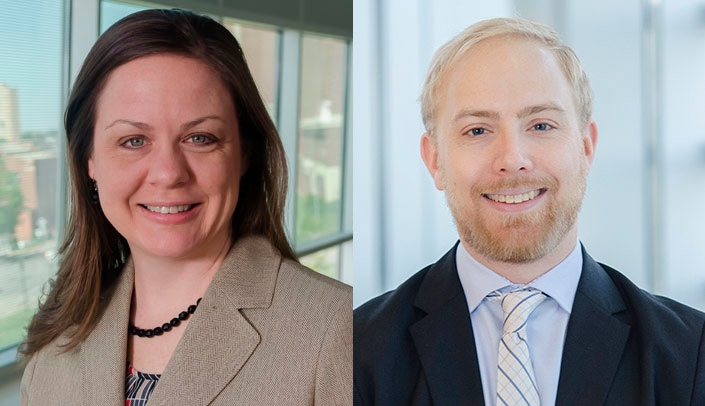The Accreditation Council for Graduate Medical Education (ACGME) has approved a new fellowship in critical care surgery at UNMC, the first such fellowship in the state of Nebraska.
Charity Evans, MD, who will serve as program director, said she hopes to recruit the university’s first fellows from the class of 2023.
The new fellowship joins the UNMC critical care anesthesiology fellowship and critical care medicine fellowship, and Dr. Evans said she looks forward to collaborating with both her anesthesiology and medicine colleagues as the fellowship gets underway.
Dr. Evans and Andrew Kamien, MD, who will serve as associate program director, are excited about the ACGME approval.
"We now can offer learners in the state and region an opportunity to train in surgical critical care," Dr. Evans said. "It’s something we’ve talked about for the surgery department and the division for the past five to seven years, and to have it come to fruition and be accredited and to start moving into actually having fellows is very exciting.
"It’s a new part of our growth and what we can offer not only UNMC and the learners, but this community," she said.
There are many things about UNMC and Nebraska Medicine that will make the med center an attractive opportunity for prospective fellows, she said.
"The fact that we have a Level One trauma center means these individuals will be learning in an environment where they’ll be dealing with critically ill patients that have a high need for expertise," Dr. Evans said.
"Besides a Level One trauma center that includes both adults and pediatric patients, we have a very large transplant program," she said. "Caring for those patients is a unique skill set that not every critical care fellowship may offer.
"And because we are Nebraska, and committed to the rural portions of our state, the fellows will see an aspect of medicine they may not have experienced in residency," she said. "If you’ve done general surgery residency in Chicago, Boston or Los Angeles, you’re not going to see the type of outreach that occurs here in Nebraska and how we interact with the critically ill patients across our state that end up at our institution. That includes not only patient care, but also outreach and how a state trauma system is set up."
In addition, Dr. Evans said, the program offers "I’ll just say it – an amazing staff. We’re currently at 15 surgeons, soon to be at 17, with a great mix of both basic science and clinical research, plenty of outreach and learning opportunities that can expand a fellow’s expertise."
Two fellows a year will be accepted into the program.
Critical care is a frame of mind, Dr. Evans said.
"Critical care providers are people who are comfortable in settings where patients are very ill. These tend to be complex settings with a lot going on. When somebody is very ill, they’re may be on a ventilator, they may be on medication to manage their blood pressure, they may be on multiple antibiotics to deal with the critical illness that’s going on."
